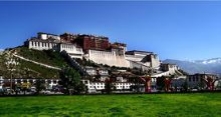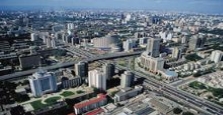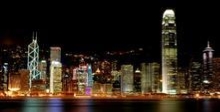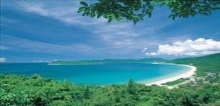题目内容
The teacher explained the question clearly to impress his students ________ its importance.
A. with B. at C. in D. On
A
【解析】试题分析:句意:老师清晰地解释这个问题用它的重要性来使学生印象深刻。考查impress sb with sth结构。
考点:考查介词

阅读下列材料,从所给的六个选项(A、B、C、D、E 和 F)中,选出符合各小 题要
求的最佳选项,选项中有一项是多余选项。请在答题卡上按题号56-60将相应选项字母涂黑。
A |
| City: Lhasa Temperature in July:15-17℃ Attractions: blue sky, fresh air and wonderful dances |
B |
| City: Harbin Temperature in July: 24-30℃ Attractions: some old buildings in Russian style |
C |
| City: Chongqing Temperature in July: 28-30℃ Attractions: tall mountains, hot food and friendly people. |
D |
| City: Hong Kong Temperature in July: 29-30℃ Attractions: nice and cheap clothes, all kinds of tasty food and chances to find good jobs. |
E |
| City: Guilin Temperature in July: 29-30℃ Attractions: fantastic hills, clean rivers and many other natural sights. |
F |
| City: Sanya Temperature in July: 27-32℃ Attractions: exciting water sports, lovely beaches and great tropical fruit. |
请阅读以下五个人的信息,然后为他们选择最适合的一处地方:
1.Joe comes from Moscow(莫斯科). He has studied in Beijing for two years. So he misses his hometown very much. He hopes to go to a city where he can find the feeling of returning home.
2.Mary is an American girl. She likes going shopping. This year she’ll graduate from a famous Chinese college. So she is planning to travel to a city where she may find a job.
3.Henry is from Canada. He is interested in surfing and diving. But the city in which he is living is far from the sea. So he is expecting to get to a place where he can do these activities and taste bananas and pineapples(菠萝).
4.Rosa comes from Britain. She cannot stand hot weather. And she thinks some Chinese cities have too much pollution. So she wants to go somewhere clean and peaceful.
5.Timmy comes from Japan. He has great interest in taking photos. He is looking forward to staying close to nature. He even wants to take a boat while taking photos. However, he doesn’t like hot food.





